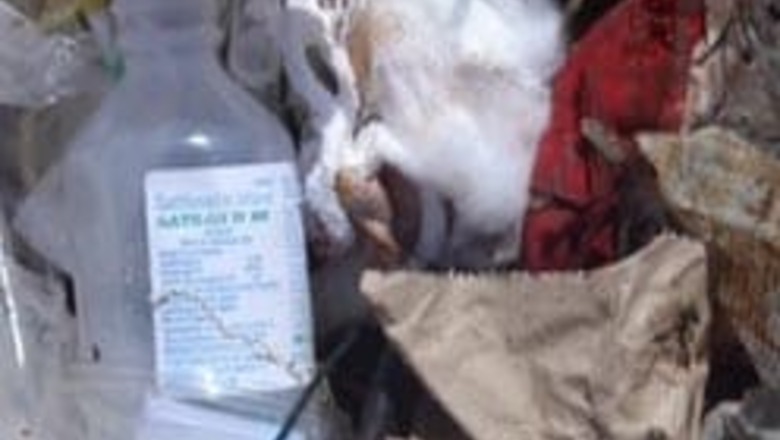
views
New Delhi: Bio-medical waste must be disposed of far away from people's homes but a company has turned the law on its head in a residential colony in Delhi.
The Synergy bio-medical waste treatment facility is deep inside Sukhdev Vihar, a collection of apartments in South-East Delhi. The plant treats body organs, blood-soaked bandages, used surgical gloves, needles, medical instruments and even radioactive matter from hospitals and clinics all over Delhi.
"You can see the plumes entering into our rooms and bedrooms and the houses. It is creating an environmental problem and would lead to long-term health hazards," says Shahid Hasan, a resident of Sukhdev Vihar. Hasan's concern is genuine-exposure to medical waste could lead to AIDS, cancers and other diseases.
Legally, 90 percent of medical waste must be autoclaved: a process that includes heating waste in a pressurised device for sterilization, somewhat like cooking wastes in a huge pressure cooker. But there is evidence to believe that the Synergy plant is not following the best practices.
"Black smoke means there will be un-burnt material coming out. Second, it [the company] is not maintaining the standard of emissions. Both things could also be happening. It leads one to think that there is mismanagement on the facility," says Ravi Agarwal, director of Toxics Link, a Delhi-based privately funded agency that specialises in toxic waste.
If black smoke is evidence of mismanagement, the plant is quite guilty. "When I get up in the morning, I find my bed's full of dark small carbon particles, the balcony is full of particles, and it is so difficult to breathe. In the morning there is nothing like fresh air here," says Anil Misra, a resident of Sukhdev Vihar.
But even if Synergy was doing a professional job of treating waste, residents ask should it have been allowed to come up at all in the first place. According to Central government guidelines, such plants must be "located at a place reasonable far away from residential areas".
The Synergy plant, which treats waste from hospitals and clinics all over Delhi, is just 28 metres from the boundary wall of Sukhdev Vihar. On the other side of the plant lies Haji colony, a densely populated locality. A third side is bounded by Ghaffar Manzil.
"We thought it was going to be a godown of sorts. We only realised what it was when the chimney was erected", says Hasan, who lives in a flat that is closest to the plant.
Air Commodore Mehra, another resident, says: "28 metres or 30 metres from our boundary is certainly not reasonable. We would like this to be shut down or shifted to another place."
The colony has petitioned the Delhi govt, the State Pollution Control Board and the matter currently rests with the Lieutenant Governor of Delhi, Tejendra Khanna. There's also the matter of a precedent in this case: a similar plant was shut down earlier this year in Kota, Rajasthan.
Residents of Sukhdev Vihar say medical wastes should be disposed-off in hospital incinerators. Bigger hospitals may do that efficiently, but who will police the smaller nursing homes and clinics?
Agarwal says centralised waste treatment plants are the best bet: they are economical and safer but only if they are not in the middle of people's homes.


















Comments
0 comment